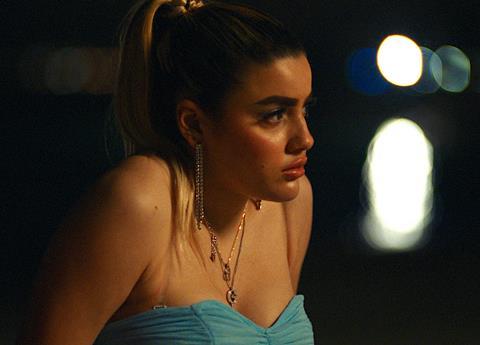
The world premiere of Agathe Riedinger’s Wild Diamond in Cannes Competition is the only one by a first-time filmmaker and heralds Riedinger as part of a new wave of French female directors to arrive en force on the Croisette.
The film explores western society’s obsession with beauty and fame and the omnipresence of social media through the story of a 19 year-old girl who sets out to earn a spot on a reality TV show.
Also in Competitoin is France-born Coralie Fargeat’s second feature The Substance. The body horror is produced by the UK’s Working Title Films and stars Demi Moore, Margaret Qualley and Dennis Quaid.
Thierry Fremaux compared it to Julia Ducournau’s 2021 Palme d’Or-winner Titane, describing it as “taking on body horror and gore with Demi Moore where blood splashes on the screen”.
In Critics’ Week, Emma Benestan’s second feature Animale is a fantasy western set in the male-dominated bull racing scene in Camargue, and actor-director Noemie Merlant’s second feature, The Balconettes, is a Midnight Screening co-written with Celine Sciamma. It is described as a blend of comedy, fantasy and horror about three roommates whose meddling in the lives of their neighbours from their balcony in Marseille turns into a bloody affair.
In Cannes Premiere, Jessica Palud’s Maria Schneider biopic Being Maria stars Anamaria Vartolomei as the famed actress as she navigates the pitfalls of fame.
Additionally, several well-known French actresses making their first outing in the director’s chair are screening in the official selection including several first-timers in Un Certain Regard: Laetitia Dosch with canine courtroom comedy Dog On Trial; Celine Sallette with Niki de Saint Phalle biopic Niki; Ariane Labed with mother-daughter drama September Says; and Louise Courvoisier with her first feature Holy Cow, a comedy-drama set in the Jura mountains
Numbers game
Just 29% of filmmakers across all of this year’s Cannes sections are female, down from 31% last year. This includes 20% in the official selection, 33% in Directors’ Fortnight, 42% in Critics’ Week, and 40% in ACID.
Only four women were selected in Competition, down from last year’s record six which saw Justine Triet’s Anatomy Of A Fall win the Palme d’Or and find audiences and Oscars.
Critics’ Week’s artistic director Ava Cahen said achieving parity is not easy since of the films received by the selection committee this year only 30% were directed by a woman.”We try to be fair. I’m very sensitive to that,” says Cahen. ”There are 11 spots for 1,500 films – the selection reflects that reality.”
That said, she adds: “Part of parity and equality is also allowing young female filmmakers to fail – just like men. All films by women aren’t good just like all films by men aren’t necessarily good.”
The films from most of the female filmmakers in selection are notably produced or co-produced by women. Muriel Meynard of Agat Films – Ex Nihilo produced Holy Cow; Julie Billy and Naomi Denamur, from June Films, produced Animale; and Celine Sciamma is an executive producer on The Balconettes.
Judith Godrèche’s short film Moi Aussi (Me Too) screened on opening night of Un Certain Regard and was produced by Didar Domehri of Maneki Films. Maneki is also one of eight independent female-led production companies that joined forces earlier in the year to launch Athena, a collective designed to foster parity in the country’s film and audiovisual industries.
Agnès Jaoui, who stars in the late Sophie Fillières’ Directors’ Fortnight opening film This Life Of Mine, has been directing films since her breakout debut The Taste Of Others in 2000. She is encouraged by the arrival of so many French female voices. “What’ is important is the long-term,” she says ”It keeps going up and down – there’s a phenomenon, then they disappear again. Women are erased from history regularly”.
Jaoui said the solution is to normalise seeing women behind the camera, “and stop saying, ‘Oh how incredible, a woman made a movie’”.

























No comments yet